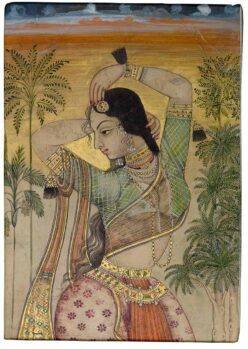Assuming however that such an extreme scenario is unlikely (we are hopeful), there are still important questions to be asked (and a few history lessons to be learned) which may point to where Modi plans to go from here to the future.
Is BJP truly a fascist party? Yes, the gloves do seem to fit quite snugly.
Are there RSS honchos who carry feelings towards Muslims just like Hitler once (and many many German leaders) felt about Jews? Yes, however the favored approach now is assimilation and not assassination (for muslims, same difference).
Finally, is it true that there were Indian nationalists who supported Hitler and Tojo in order to get rid of the Holocaust architects of South Asia- the British? Why, yes, that is also very much a part of Indian history, even though the Nehru-Gandhis have tried hard to rub it out. And Netaji Subhash Bose has plenty of fans even to this day, and not just in liberal-left Bengal.
……..
It was not just Netaji though, was it? There were famous muslim partners of Hitler, including a number of Waffen-SS divisions comprising of Bosnians-Kosovars-Albanian muslims. The Mufti of Jerusalem (Haj Amin Al-Husseini) raised 20,000 troops for Hitler and was a proud partner of the Third Reich. It will be no surprise if some of these valiant leaders/soldiers and their exploits have found a pride of place in the History of Ummah.
Love of Hitler, or to be precise, love of the Fuhrer’s Friends now and in the past, seems to be much more universal than the liberals in the West are willing to let on.
……………………
may represent the devil they know; a leader whose economic success and
reputation for leadership provides stability and confidence.
importantly, given Modi’s Indian nationalism, these voting patterns
suggest India’s Muslims who supported the BJP see themselves as Indians
first and Muslims second.
Modi has tapped into draws upon allegiances and ties some Americans
might find troubling. At a May 8 BJP rally in Varanasi, Modi honored a
115 year old Indian colonel who served under Subhash Chandra Bose in the
Indian National Army (INA).
recognized by the Axis Powers during World War II as India’s rightful
government, whose support he sought against the British to help India
achieve independence. INA soldiers fought alongside the Japanese against
the British in the Burma campaign, were defeated, and 300 officers were
tried for treason. In August 1945, Netaji (Bose) died in a plane crash
in Japanese-occupied Taiwan.
mostly forgotten. But within the country—and especially among India’s
rising business titans—Netaji is revered.
been a powerful exporter much before China if only Netaji had a front
seat in our policy making along with (Jawaharlal) Nehru,” said Infosys
Technologies founder Narayana Murthy at Netaji’s 114th birthday celebration. “Netaji was one of the most courageous leaders in India.”
speaks loudest. Mahatma Gandhi, whom many Americans see as India’s most
important founding father, does not command the same respect throughout
his country.
mourning, it was sponsored by the Hindu Mahasabha, the spiritual and
political forerunner to the BJP. The conspirators saw killing Gandhi as a
necessary evil, believing his policies would destroy India.
Hindu nationalist view, although Gandhi led a powerful nonviolent
resistance movement, he was responsible for giving away Pakistan,
setting India on a ruinous economic course, and promoting the country’s
cultural division into 22 official languages.
evicting the British and uniting India, Hindu nationalists believe his
nonviolence and socialism were fine for spirituality but had no place in
statecraft. Ironically, this makes Modi the Mahatma’s antithesis and
populist successor. Like Gandhi, Modi’s charismatic patriotism, austere
lifestyle and disciplined leadership have won India’s trust. But Modi’s
conservative policies run contrary to the socialist Congress, and thus
the vote is a clear mandate for change. “He is our Obama,” several Modi
voters told me, perhaps unaware of how far off the mark our current
president fell from his soaring campaign rhetoric.
India’s international relations, but his hardline conservatism and long
memory suggest he will be friendly towards countries who have
steadfastly supported India’s independence. Ties to Russia have endured
since the Cold War, when India embraced the Soviet Union after the
United States supported Pakistan.
Shinzo Abe visited Netaji’s memorial in Kolkata, a gesture Modi is
unlikely to forget.
economic rise, should India grow as a consumer market, or become
strained through geopolitical competition, if skirmishes occurred over
the Arunachal Pradesh or Aksai Chin border disputes.
scriptures, Lord Shiva is depicted as a multi-formed enigma, embodying
both honor and brilliance as well as invincibility and terror. Modi
supporters treat the 2002 violence—in which they tacitly acknowledge his
responsibility—with an Indian equivalent of a Gallic shrug: it was
unfortunate, they say, but sometimes good people are forced to do bad
things. His opponents respond, correctly, that Modi’s victory repudiates
Gandhi’s vision of religious unity, and is thus an Indian tragedy.
Shiva has many forms in the Hindu tradition, but the two most dominant
are as either a benefactor or a destroyer.
population—lives in either India or the United States. By 2025,
according to current projections, India will overtake China as the
world’s most populous country. “They are much the most interesting
people in the world—and the nearest to being incomprehensible,” Mark
Twain concluded about Indians. “Their character and their history, their
customs and their religion, confront you with riddles at every
turn—riddles which are a trifle more perplexing after they are explained
than they were before.”
better explained the man poised to lead her dynamic and paradoxical
nation. Only time—or, perhaps, the sacred river—can tell which of Lord
Shiva’s many incarnations the devout Hindu leader will become.
…………………
Link (1): http://www.the-american-interest.com/articles/2014/05/15/what-does-a-modi-win-mean/
Link (2): http://www.monbiot.com/2005/12/27/how-britain-denies-its-holocausts/
………..
regards
